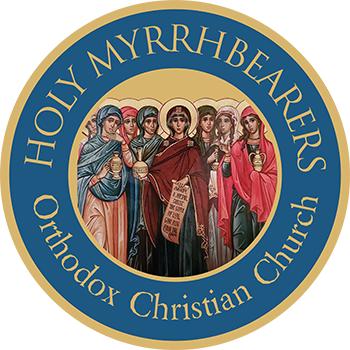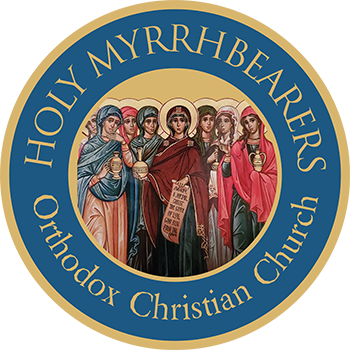December 27, 2021

Today we begin our preparation for the feast of the Lord’s Nativity in earnest. We begin to look at and appreciate the preparation that God, Himself, made for His incarnation by considering the ancestors of Jesus Christ, which is His physical forebearer. Among those that we consider are Enoch, Noah, Abraham and Sarah, Isaac and Rebecca, and the other patriarchs. We remember the judges, prophets and kings and many of the other saints of the Old Testament. Each one of these Old Testament saints. represents for us a particular virtue, some Godly quality of their lives which stands out as a beacon and example for us. There is “the God-loving gentleness and meekness of the first martyr in the world, Abel; the holy zeal for the glorification of the name of God of Enos; the high divine thinking and the fear of God of Enoch; the firmness in faith and piety of Noah among the general depravity of his
contemporary world; the wonderful faith and obedience to the word of God of Abraham; loving obedience of Isaac up to the preparation to be offered as a burnt offering according to the command of God; the kind domestic bravery of Sarah; the penetrating maternal love of Rebecca; the mild humility of Jacob who earned the rage of Laban and Esau; the holy chastity of Joseph who was more than ready to suffer and die, rather than to sin before God; the unhampered invincible patience in the sufferings and misfortunes of Job; the meek, wise leadership of Moses and Samuel; the inspiring courage through faith of Joshua son of Nun, Barak, and Gideon; the high self-sacrificing love for their country and people of Judith and Esther; the sorrowful and contrite repentance of David and Manasseh; the ascetic and divinely intellectual life of Elijah and Elisha; the zeal for the glory of God of the holy prophets, the
unhampered invincible dedication to the law of God and usual patriotism of the three youths in Babylon and the rest of the good deeds of all the other Old Testament men we celebrate, ‘of whom the world was not worthy’ (Hebrews 11:38).”(www.johnsanidopoulos.com , Mystagogy ; Sunday of the Holy Forefathers)
In particular on this day we remember the prophet Daniel and the Three Holy Children. These youths were among those who were taken captive after the fall of Judea to the Babylonians. They were taken to Babylon where they served the king. These 4 young men stand out among the captives for their unwavering faith in the one true God and their refusal to compromise that faith.
The three youths were cast into a furnace to be burned alive because they would not bow down to an idol constructed by the king. As we know they were preserved by God, unharmed in the midst of the flames, even though the furnace was so hot that it killed those who were nearby tending it. Daniel also exhibited his faith over and over again, being cast into a den of lions twice – and both times God closed the mouths of the beasts. Daniel gained importance by the wisdom and knowledge granted him by God, becoming known as an interpreter of dreams and other supernatural miracles and influenced the rulers of Babylon as well as their conquerors, the Medes and Persians to worship the one true God. Even so, as he rose in positions of power, he never compromised his faith.
There are many examples of his faith given to us in the scripture, however, we will only look at one of these today. There was a large idol worshiped by the Persians called Bel. Every day there was offered to
this idol 12 measures of flour, 40 sheep and 6 vessels of wine. Daniel, however, did not bow to this idol and Cyrus the king of the Persians asked him why. Daniel replied that he did not worship idols made by the hands of men but worshiped the living God who made heaven and earth. Cyrus claimed that the idol was not a dead thing but alive and offered proof that it ate and drank every day the sacrifices offered to it. Daniel denied that the idol could eat and suggested that the king was deceived. The king became angry and called the priests of Bel to himself. He demanded to know from them, who ate the food and when they contended that the idol Bel did so, the king demanded proof. The sacrifice was put into the temple and the door was then sealed with the king’s signet. But after the priests had left and before the door was sealed by the king, Daniel covered the floor with a layer of fine ashes and then the door was closed. The next morning, the king returned and in the presence of Daniel and the priests inspected the seal on the door to verify that it had not been broken. What he did not know was that the priests had a secret entrance and that during the night they and their families (there were 70 priests plus women and children) came secretly into the temple and consumed the sacrifice. The king opened the door and the sacrifice was gone – but before anyone could enter the temple, Daniel pointed out to the king that the ashes on the floor – which had been undisturbed the night before – were now covered with tracks of men, women and children. The king then knew that the idol, Bel, was not alive and that he had been deceived by the priests.
Having heard this account from the life of Daniel, let us remember that all of our thoughts and deeds, even those that we think hidden within the depths of our minds and hearts, leave traces. Sometimes those “tracks” can be discovered simply by looking and other times they can be seen only by those trained in the art of observation. Some thoughts and deeds are only visible to the eye that has been spiritually attuned and therefore we see the value of spirit-bearing priests and elders to help us uncover even our secret sins. But God sees all these tracks of our deeds and thoughts, whether sinful or virtuous, for nothing is hidden from Him. The nature of even our innermost selves, is revealed by the ashes of grace which are sprinkled in our hearts by the Holy Spirit.
The Old Testament saints whom we honor today show us the “tracks” of their virtues clearly, so that not only can we perceive that these virtues rest in the saints, but they also give us a path to follow so
that we might be able to incorporate those same virtues for ourselves. This is the purpose of the remembrance of these saints, to provide for us an indication of the way to acquire the virtues which they themselves exhibited. The virtues which we ourselves may acquire!
And the doors of the wedding feast were opened to many others, not only of the Hebrew race, but also among the Gentiles who embraced the faith in Jesus Christ, us, and were “grafted on” to the vine of Christ. Thus the wedding feast was again filled with guests. But there was one guest who was found to be without a proper wedding garment and even though he had accepted the invitation to the feast, he was cast out because he did not have the proper clothing. This clothing is the grace of the Holy Spirit which is evident in the virtues and other fruit of the Spirit in our lives. We gain this clothing by pursuing an Orthodox Christian life, living according to the revelation of Jesus Christ. This unfortunate guest, while initially present at the feast, did not bother to acquire this “wedding garment” of God’s grace and so in the end was removed from the feast.
The door to the Kingdom of heaven was open to all men and women, and all are invited to the banquet – and especially to the chosen people of God. But not everyone who was invited responded. Just as in the parable of the Gospel that we heard today, some of those invited turned away from the Kingdom of heaven to pursue their own earthly goals. They chose to follow the track of earthly wealth and pleasures rather than to seek out and follow the tracks of the heavenly virtues in the lives of the saints.
Let us then not make the same error, but let us follow these wonderful saints who are held up to us today as examples of the virtues, so that by doing so, we might gain these virtues for ourselves. Let us
follow them into the Kingdom of Heaven, not turning aside and being distracted by the cares and appeals of this world. Today we stand on the threshold of the feast of the incarnation, the birth of our Lord, the God/man Jesus Christ. All these saints prepared the way for His coming and by the example of their lives show us how we too, can come to Christ. The path is laid out for us, the tracks are clear for us, all we have to do is follow. May God bless and guide us, through His Holy Spirit.
Comments will be approved before showing up.

